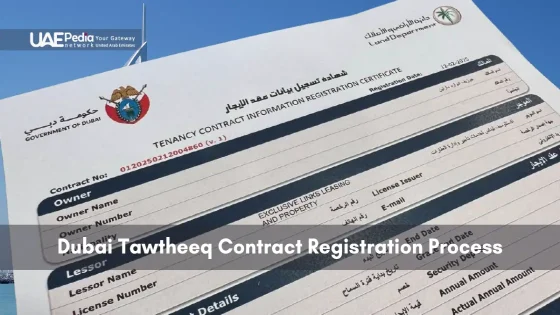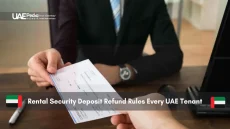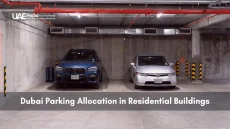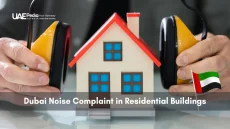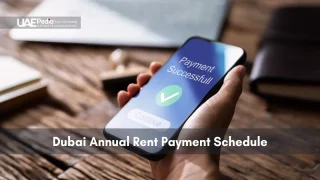Did you know over 80% of tenancy disputes in the UAE arise from unclear financial terms? While the glittering skyline might steal your attention, the real magic for a smooth stay lies in understanding your lease’s fine print. Let’s unpack how clarity on payment structures can turn a stressful process into a straightforward experience.
Whether you’re a first-time renter or a seasoned expat, knowing your options matters. Ejari, the government’s registration system, ensures contracts meet legal standards—but the details still depend on what you and the property owner agree to. Split payments, security deposits, and due dates all shape your financial commitment.
This guide is tailored for newcomers and urban dwellers aiming to balance convenience with compliance. We’ll walk through common scenarios, from single-check setups to installment plans, so you can choose what aligns with your budget. After all, a well-structured agreement isn’t just paperwork—it’s peace of mind.
Key takeaways:
- Clear payment terms prevent conflicts and protect both renters and property owners.
- Ejari-certified contracts ensure legal validity, but flexibility exists within those frameworks.
- Tailored strategies help align lease conditions with your financial preferences.
The Fundamentals of Dubai Rental Contracts and Payment Methods
Ever signed a document where the small print mattered more than the bold headings? That’s your lease. Every tenancy arrangement here revolves around three pillars: who’s involved, what’s being leased, and how money moves. Let’s crack open these essentials.
What’s Inside the Paperwork?
Your agreement starts with names—yours and the property owner’s—plus the address and description of your future home. The numbers follow: annual rent, security deposit (usually 5% of the yearly amount), and lease duration. Dates for handing over keys and reviewing terms get spelled out clearly.
One pro tip? Check clauses about maintenance responsibilities. Some landlords handle AC servicing, while others expect tenants to manage minor repairs. Clarity here saves summer sweat—literally.
Why Ejari Isn’t Optional
Think of Ejari as your contract’s authenticity stamp. This government-run system ensures agreements meet Dubai’s housing laws. Without it, you can’t set up utilities or request annual renewals. Registration takes minutes online but locks in protections for both sides.
“An unregistered contract is like a ticket without a destination—it won’t take you far if issues arise.” — Local Legal Advisor
Payment schedules vary, but all valid deals specify installment counts and due dates. Whether you prefer quarterly transfers or annual checks, these terms become enforceable once Ejari-approved. Surprises? Not in this desert.
Read More:
Understanding the Dubai Rental Contract Payment Method
Ever wondered how a simple piece of paper can shape your living experience in a bustling city? The way money changes hands between residents and property owners isn’t just about dates and digits—it’s a dance of trust, planning, and legal safeguards. Let’s decode what’s at stake for everyone involved.
What It Means for Tenants and Landlords
Post-dated cheques rule here. Tenants often provide these upfront, locking in installments across the lease year. For landlords, it’s cash flow security. For you? Predictable budgeting. But here’s the twist: those slips of paper carry legal weight. Bouncing one could trigger penalties or even eviction under local laws.
Bounced post-dated cheques trigger strict penalties, with the Rental Dispute Settlement Centre processing hundreds of returned-cheque cases monthly.Ref.: “DIFC Courts. (2022). Lanakila v Lang: Small Claims Tribunal Judgment. DIFC Courts.”
Clear terms in the agreement act like guardrails. They define how often funds move, who handles fees, and what happens if plans shift. A single cheque might ease a landlord’s mind, but quarterly splits? That’s gold for tenants juggling monthly expenses. The system thrives on this balance—flexibility within structure.
“Post-dated cheques aren’t just tradition—they’re a legal handshake,” notes a property lawyer. “Both sides commit to timelines, reducing ‘he said, she said’ dramas.”
Benefits for residents go beyond spreadsheets. Transparent payment plans become bargaining chips. Want to renew next year? Prove you’re reliable, and landlords might freeze rates or upgrade appliances. For more on aligning these strategies, check our guide on secure lease terms.
- Budget clarity: Know exactly when funds leave your account.
- Legal safety nets: Cheques create enforceable deadlines.
- Relationship builders: Consistent payments foster trust for future negotiations.
Failure to clear a bounced cheque can lead landlords to file police reports and seek eviction orders within 15 days.Ref.: “Remitly. (2025). Tenant Responsibilities in the UAE and the Rental Dispute Process. Remitly Blog.”
Rent Payment Options: Single Cheque, Multiple Cheques, and Direct Debit
Picture this: You’ve found your dream apartment. Now comes the real test—choosing how to handle the financial handshake. Your approach here shapes your cash flow and landlord rapport. Let’s explore three pathways.
Advantages and Downsides of Single Cheque Payments
Handing over one check for the entire lease? For property owners, it’s instant liquidity—no chasing installments. Tenants might snag a 5-10% discount for this upfront commitment. But there’s a catch: parting with a year’s funds upfront strains most budgets. Unexpected expenses? You’ve already locked those dirhams away.
While upfront single-cheque payments may secure a 5–10% rent discount, tenants often face severe cash-flow strain and may resort to personal loans.Ref.: “Gulf News. (2025). Paying rent in a single cheque: Costly trap for tenants. Gulf News.”
Benefits and Risks of Multiple Cheque Arrangements
Splitting payments into quarterly or monthly chunks eases budgeting. Smaller amounts mean breathing room—until a due date slips. Bounced checks here aren’t just awkward; they’re legal landmines. Some landlords add fees for the hassle of processing multiple transactions. Yet for many, the flexibility outweighs these risks.
Enter digital solutions: automated transfers via bank apps now bypass paper entirely. Scheduled payments land directly in the owner’s account, slashing paperwork and late fees. One tenant we spoke with called it “set-and-forget peace of mind”—no checkbooks required.
“Lump sums favor landlords, installments empower tenants. The sweet spot? Shared flexibility.” — Dubai Real Estate Analyst
Leveraging Digital Platforms for Automated Rent Payments
Imagine paying your rent as effortlessly as streaming your favorite show. Across the city, paper trails are fading—replaced by apps that handle dirhams with a tap. This shift isn’t just convenient; it’s rewriting how residents and property owners interact.
Automation of rent cycles via banking apps can eliminate late fees and reduce disputes by ensuring timely, traceable payments.Ref.: “Fingent. (2025). SAP for Real Estate: How Smart Tech is Reshaping the Industry. Fingent Blog.”
How Bank Transfers and Direct Debit Streamline Transactions
Gone are the days of racing to drop off cheques before offices close. Platforms like Emirates NBD’s SmartHub let tenants schedule transfers months ahead. One expat shared: “I set it and forget it—no more calendar alarms or sticky notes.”
Ejari’s Direct Debit system takes it further. Landlords receive funds automatically on agreed dates, while tenants get digital receipts instantly. Missed deadlines? The app nudges you before fees apply. Transparency becomes the default, not an afterthought.
“Automation cuts disputes by 40% in our buildings. Both sides see every transaction in real time.” — Property Tech CEO
Benefits stack up fast:
- Tracking payments becomes as simple as checking your email
- Scheduled reminders prevent accidental oversights
- Digital trails strengthen your tenancy contract history
While some still prefer handing over a single cheque, platforms like Mashreq Neo allow splitting into multiple cheques digitally. Best of both worlds? Perhaps. As one agent joked: “Even my grandma approves—she just watches the notifications pop up.”
Check out the below:
Legal Framework and Rights in Dubai Rental Agreements
What keeps your lease from turning into a legal desert storm? Clear rules. Dubai’s housing laws act like GPS coordinates—guiding every transaction with precision. Let’s map the safeguards that keep both renters and property owners on solid ground.
Essential Laws and Regulations Every Renter Should Know
Law No. 26 of 2007 sets the stage. It caps annual rent increases at 5-20% (based on local averages) and requires 90-day notice for adjustments. Ejari registration isn’t just paperwork—it’s your golden ticket to legal protection. The system flags non-compliant clauses before they become headaches.
Cheques remain king here. Post-dated ones act as collateral, but bounce one? Penalties start at AED 2,000. Digital payments gain traction too. Platforms like Dubai Now log every dirham transfer, creating audit trails even Sherlock would envy. For a full breakdown, check the official tenancy guide.
“Ejari turns verbal promises into enforceable actions. It’s your shield against ‘I never said that’ moments.” — Real Estate Legal Advisor
Balancing Rights in Financial Commitments
Tenants can request receipts for every payment method—cash, credit card, or direct debit. Landlords? They get legal backing to claim dues if deadlines pass. The table below highlights key protections:
| Scenario | Tenant Rights | Landlord Rights |
|---|---|---|
| Bounced Cheque | 30-day grace period to resolve | Can file police report after 15 days |
| Early Termination | Recover deposit if notice given | Claim 2 months’ rent as penalty |
| Disputed Charges | Request maintenance invoices | Deduct fees from deposit with proof |
Always keep records. Screenshots of bank transfers or scanned cheques hold up better than “trust me” in disputes. Digital logs via apps like ADCB Hayak simplify this—they timestamp every transaction automatically.
Negotiating Payment Terms for a Flexible Lease Agreement
What if your paycheck schedule could shape your lease terms? Many residents don’t realize they hold bargaining power until they ask. Smart negotiation transforms rigid agreements into tailored solutions that work for both parties.
Practical Tips for Tenants to Secure Better Terms
Start by showcasing reliability. Recent bank statements or employment letters prove you can cover the amount. One tenant we spoke with landed a 4-check deal by sharing proof of steady income. “Landlords want certainty,” she noted. “Numbers speak louder than promises.”
| Strategy | Ask For | Potential Win |
|---|---|---|
| Income Alignment | Adjust due dates to match paydays | Reduces late fees |
| Tech Leverage | Digital platforms for auto-pay | Built-in reminders |
| Grace Periods | 3-5 extra days for transfers | Avoids penalties |
Initiate talks early—ideally 30 days before signing. Clarify exact amounts and preferred transfer methods upfront. Properties with multiple vacancies often have more flexible owners. One agent shared: “June and December see softer markets. That’s when renters get creative terms.”
“Bring solutions, not demands. Suggest splitting the annual amount into six checks instead of four. Everyone wins.” — Leasing Specialist, Bayut
- Bank on transparency: Offer automated payments through your bank app
- Rights reinforcement: Request written confirmation of any verbal agreements
- Calendar hacks: Align due dates with bonus periods or tax refunds
Digital-first approaches gain traction. Apps like Beam allow “rent now, pay later” options—ideal for freelancers. While traditional agreements favored property owners, today’s tools let tenants design payment flows that match their lives. After all, flexibility shouldn’t be a luxury.
Final Thoughts: Making Informed Decisions for Your Dubai Rent Payment Strategy
Charting your financial path in a dynamic city requires both a compass and a map. Whether you prefer the predictability of post-dated cheques or the convenience of digital transfers, your choices shape your experience. Local laws and dates aren’t just fine print—they’re guardrails that keep everyone accountable.
Traditional methods offer familiarity, while platforms like direct debit sync with modern lifestyles. Renters juggling multiple credit commitments might lean toward split card payments. Others prioritize upfront simplicity. There’s no universal answer—only what fits your calendar and cash flow.
Review agreements with a detective’s eye. Spot clauses about grace periods or maintenance fees. Negotiate terms that mirror your income rhythm—maybe aligning due dates with bonus cycles. Time your strategy like a pro: market shifts in summer often mean flexible landlords.
Stay curious about updates in housing laws. New apps and regulations emerge yearly, smoothing processes for renters. Bookmark official portals for real-time changes. Your future self will thank you when renewal time arrives.
Ultimately, knowledge turns contracts from constraints into tools. Pair tradition with tech, plan with precision, and watch your urban journey unfold—one well-timed transaction at a time.
While many landlords prefer single-cheque payments, UAE law allows tenants to negotiate payment terms. Most agreements settle on 1-4 cheques annually, depending on mutual agreement and property type. Always confirm terms before signing and ensure they’re reflected in your Ejari registration.
Landlords must accept payment methods outlined in your registered tenancy contract. If they reject agreed-upon methods like cheques or bank transfers, file a complaint with RERA’s Rental Dispute Center. Keep records of all communication for evidence.
Yes – whether paying via direct debit, bank transfer, or cheque, delays can incur 5% monthly penalties of the annual rent. Set calendar reminders for due dates and consider automated alerts through your banking app to avoid slip-ups.
Ejari legally binds all agreed payment details – installment dates, amounts, and methods – making them enforceable through Dubai’s courts. Never sign a contract without Ejari certification, as verbal agreements hold no weight in disputes.
A> Mixed payments are rare but possible if both parties agree. We recommend avoiding cash transactions for major payments – use bank transfers or cheques with clear memos like “Q4 2024 Rent – Villa 12A” for traceability.
Some banks like Emirates NBD and Mashreq offer rent payment portals with credit card options. While you’ll earn points, check processing fees (usually 1-2%) first. Compare these costs against potential rewards to see if it’s worthwhile.

